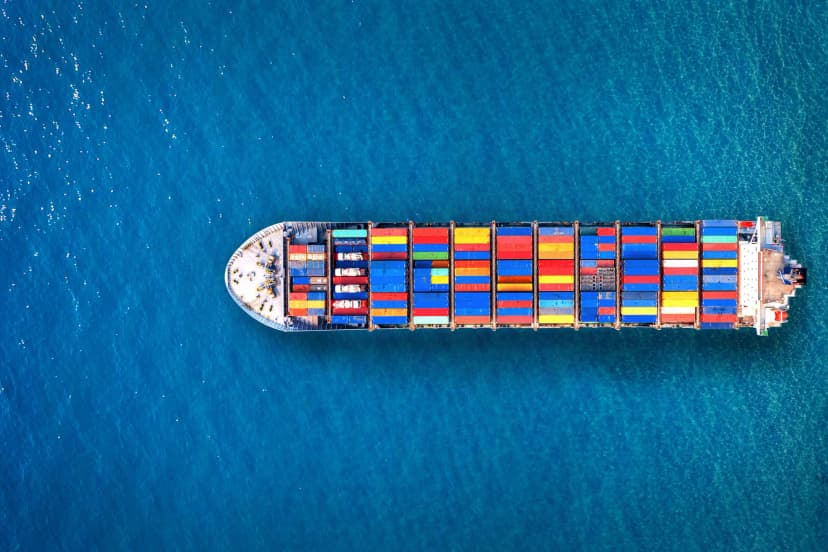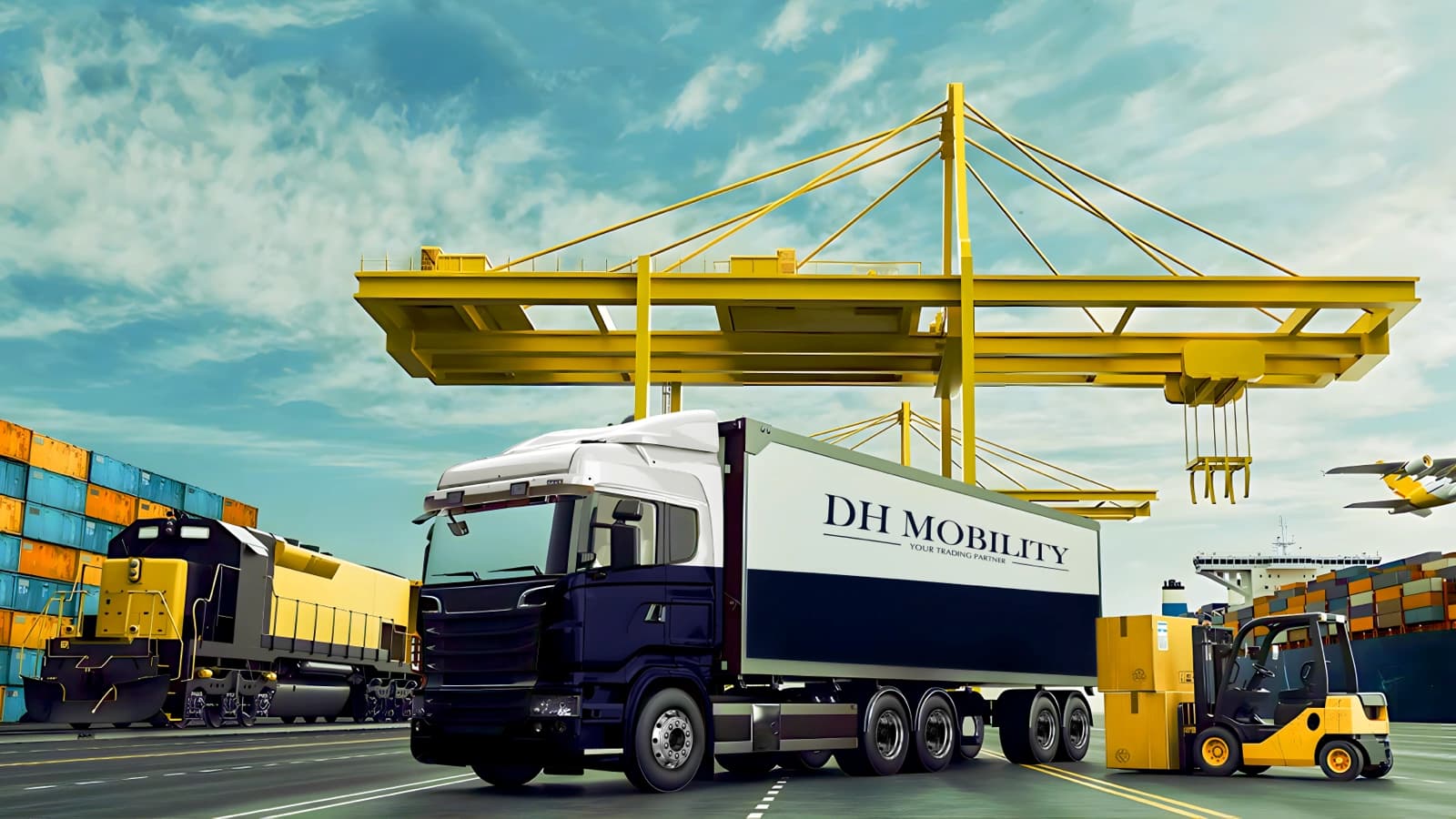Your complete guide to importing from China
trading, import, logistics
Henk Deen
July 1, 2025
Your complete guide to importing from China
China remains the world's manufacturing powerhouse, offering businesses incredible opportunities to source high-quality products at competitive prices. Whether you're looking to import white label products, private label goods, or specialized equipment, understanding the import process is crucial for success. In this comprehensive guide, we'll walk you through everything you need to know about importing from China.
Why import from China?
China's manufacturing capabilities are unmatched globally. From electronics and textiles to industrial equipment and consumer goods, Chinese manufacturers offer competitive pricing, scalable production, and increasingly sophisticated quality standards. For businesses looking to develop private label products or source white label solutions, China provides access to established supply chains and experienced manufacturers.
The key advantage lies in cost efficiency without compromising on quality—when you know how to navigate the system properly. However, successful importing requires understanding logistics, regulations, and quality control processes.
Understanding import duties and customs regulations
One of the most critical aspects of importing from China involves navigating customs duties and import regulations. Every country has different rules for goods imported from outside the EU, and China import duties can vary significantly depending on the product category and destination country.
Import duties from China are determined by several factors:
- Product classification: Different goods have different tariff rates
- Country of origin: Trade agreements may affect duty rates
- Value of goods: Higher-value shipments may attract additional scrutiny
- Import documentation: Proper paperwork is essential for smooth customs clearance
Understanding these regulations early in your import planning prevents costly delays and unexpected expenses. Each product has a specific HS (Harmonized System) code that determines the applicable duty rate, and miscalculation can lead to significant financial impact.
Choosing between sea freight and air freight
When importing from China, you'll need to decide between sea freight and air freight based on your specific needs:
Sea freight advantages:
- Cost-effective for large volumes
- Suitable for heavy or bulky items
- Lower per-unit shipping costs
- Environmentally friendly option
Air freight advantages:
- Faster delivery times (days vs. weeks)
- Better for time-sensitive goods
- Lower risk of damage
- Ideal for high-value, low-weight products
Most businesses importing from China use sea freight for bulk orders and air freight for urgent shipments or samples. The choice depends on your budget, timeline, and product characteristics.

Developing private label and white label products
China excels in private label manufacturing, allowing businesses to create custom products under their own brand. Whether you're developing white label products for quick market entry or building a comprehensive private label strategy, Chinese manufacturers offer flexibility and expertise.
Private label development process:
- Product specification: Define your exact requirements
- Manufacturer selection: Find factories with relevant experience
- Sample development: Test and refine your product
- Quality standards: Establish clear quality benchmarks
- Production scaling: Plan for volume manufacturing
White label opportunities: Many Chinese manufacturers offer existing products that can be customized with your branding. This approach allows faster market entry with proven products while maintaining quality standards.
Discover our private label solutions and how we help businesses create their unique brand identity with Chinese manufacturing partners.
Quality control and supplier management
Successful importing from China requires robust quality control processes. Establishing clear quality standards, conducting factory audits, and implementing inspection procedures ensures your imported goods meet expectations.
Key quality control steps include:
- Supplier verification: Confirm manufacturer credentials and capabilities
- Pre-production samples: Test products before full production
- In-line inspections: Monitor production quality during manufacturing
- Pre-shipment inspection: Final quality check before goods leave China
- Documentation review: Ensure all paperwork is accurate and complete
Learn more about our quality control services and how we ensure your products meet the highest standards throughout the manufacturing process.
Logistics and supply chain management
Importing from China involves complex logistics coordination. From factory pickup to final delivery, multiple steps require careful management:
Sea freight process:
- Factory to port transportation
- Export customs clearance in China
- Ocean transportation (typically 2-6 weeks to Europe)
- Import customs clearance at destination
- Final delivery to your warehouse
Air freight process:
- Factory to airport transportation
- Export customs clearance in China
- Air transportation (typically 3-7 days)
- Import customs clearance at destination
- Final delivery to your location
Proper logistics planning ensures smooth operations and predictable delivery schedules.
Working with import specialists
Navigating China's import landscape can be complex, especially for businesses new to international trade. Import specialists bring valuable expertise in supplier relationships, quality control, logistics coordination, and regulatory compliance.
Professional import services typically include:
- Supplier sourcing and verification
- Quality control and factory inspections
- Logistics coordination and optimization
- Customs compliance and documentation
- Risk management and problem resolution
Learn more about our comprehensive import services and how we help businesses successfully import from China while minimizing risks and maximizing efficiency.
Common challenges and how to overcome them
Language and communication barriers: Clear communication is essential for successful importing. Working with suppliers who have English-speaking teams or using professional intermediaries ensures accurate information exchange.
Quality consistency: Maintaining consistent quality across shipments requires ongoing monitoring and clear specifications. Regular factory visits and inspection protocols help maintain standards.
Payment and financial security: Secure payment methods and appropriate trade terms protect your investment. Letters of credit, trade finance, and escrow services provide financial security.
Regulatory compliance: Keeping up with changing import regulations prevents costly delays. Professional guidance ensures compliance with all applicable standards.
Planning your first import from China
Getting started with importing from China requires careful planning:
- Market research: Understand demand for your target products
- Supplier identification: Find reliable manufacturing partners
- Cost analysis: Calculate total landed costs including duties and logistics
- Regulatory research: Understand all applicable import requirements
- Logistics planning: Determine optimal shipping methods and timelines
- Quality framework: Establish inspection and quality control processes
The future of China imports
China continues evolving as a manufacturing hub, with increasing focus on quality, sustainability, and technological advancement. Modern Chinese manufacturers offer sophisticated capabilities for both simple products and complex manufacturing requirements.
For businesses looking to import from China, the opportunities are vast—from cost-effective white label solutions to custom private label development. Success requires understanding the process, managing risks effectively, and working with experienced partners who can navigate the complexities.
Ready to start importing from China? Whether you need white label products, private label development, or specialized equipment, professional guidance ensures successful importing operations. Contact experienced import specialists who understand China's manufacturing landscape and can help you achieve your business objectives efficiently and cost-effectively.
Looking for a reliable partner for importing or exporting to China? Don't hesitate to contact us or learn more about us and discover how we can support your business goals.

